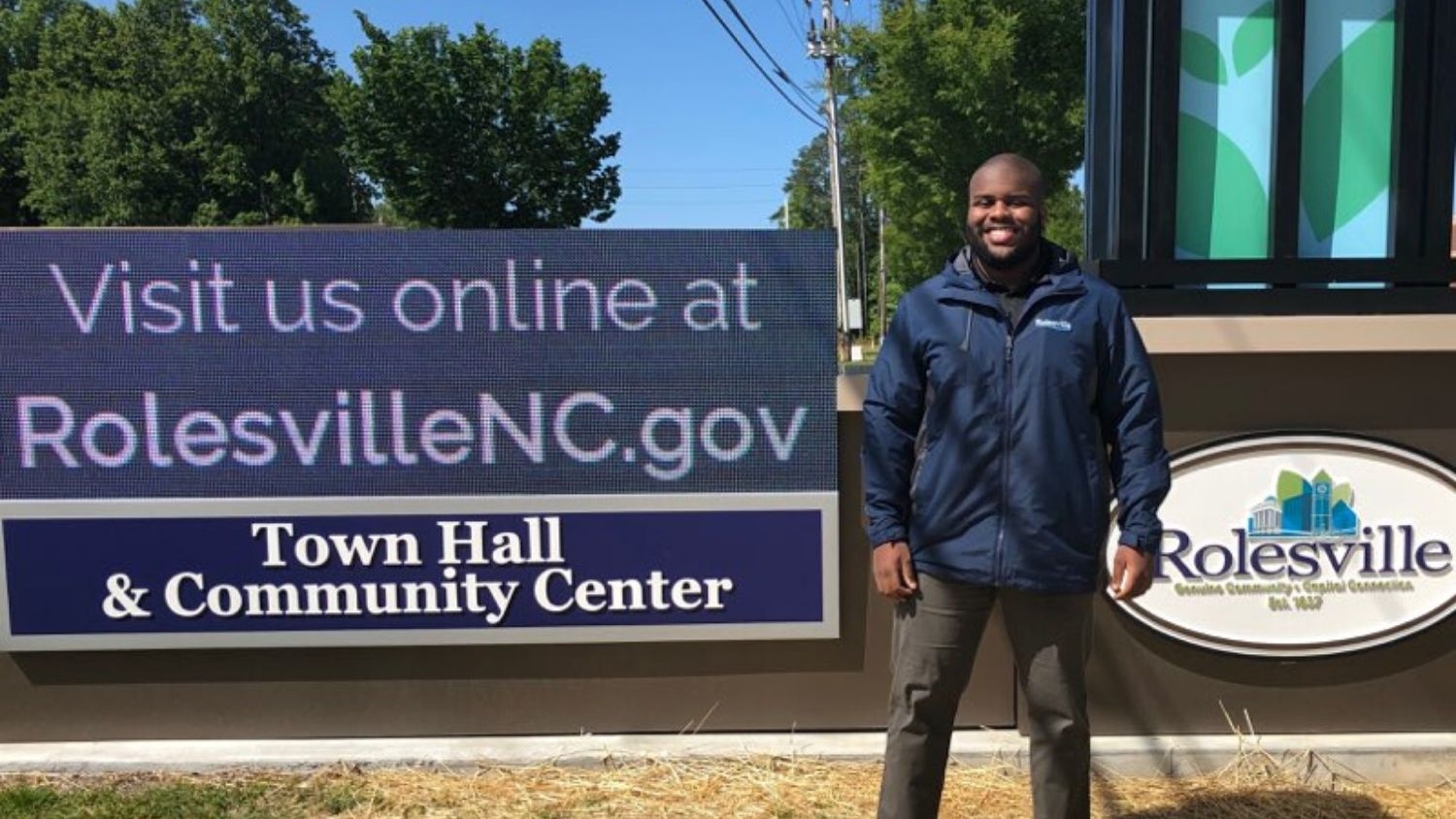Five Questions with Athletic Coordinator Garrit Soney

Garrit Soney graduated with a degree in Parks, Recreation, and Tourism Management, with a concentration in Program Management, in 2019. He is now working for the Town of Rolesville as an athletic coordinator. We sat down to talk with him about his time at NC State and new position.
What is a typical day in your job like?
Working in a municipal parks and recreation department, no two days are the same. My job is to provide our residents with high quality athletic programs including basketball, baseball, softball, soccer, football and cheerleading. I am responsible for seeing these programs through, start to finish.
My day depends on the time of year, being that we operate by seasons. Currently I am and have already been working on our fall season. One thing I learned from my boss who once held the position I am in, is that if you’re not getting ahead of things in athletics, then you’re already behind.
My days are filled with managing participant registration, recruiting coaches, scheduling and managing sponsors. Once fall starts then I will already be turning my head towards the next spring.
What inspired you to study Parks, Recreation, and Tourism Management?
I came to NC State as a Sport Management major. I’ve always had a love for athletics. After my first class at NC State, “Intro to Parks and Recreation,” in a lecture hall of about 150-plus students, I was sold. Municipal parks and recreation was for me and I changed majors the next semester. To the average 18-year-old college student that sounds incredibly boring, but to me I knew I had stumbled upon something special.
To really answer the question, my professors were the ones who inspired me to study PRTM. Their passion for the profession caught my attention right away. I believe very strongly that PRTM professors are the most enthusiastic people at NC State. They love what they teach and they can’t help but instill that same passion into you with classes that go below the surface and help foster a deeper understanding of what it means to be a professional in the field of parks and recreation.
What impact are you making on the community through your work in Parks and Recreation?
I truly believe that parks and recreation is one of the building blocks of community. We provide a service to enhance the lives of the people that reside in our communities.
I think one of the biggest influences my program has is social impact. Athletics brings people together from all over, allowing people to interact and form relationships with each other. It allows for a greater mix of our town by bringing people together who may not interact otherwise, whether it is due to cultural differences, or physical distances.
This is the spark that leads to those impromptu grocery store conversations, inviting someone over for dinner or the creation of a lifelong friendship. This is what creates community.
How did the College of Natural Resources prepare you for your current position?
The College of Natural Resources is a group of educational leaders that care about the well-being of their students. The steps that the college takes to prepare students are laid out to help maximize success.
I was taught the history and important theory of my studies to create a base, then I was pushed to execute and put those theories to the test in a low stakes environment, allowing myself to become more comfortable. After this, being sent out on an internship gives you a little more freedom while also allowing you to gather an understanding of your future profession. This helps put things into perspective and presents real-world factors along with limitations that theory cannot always predict.
This flow of learning was essential to my professional maturity and ability to rise to the challenge upon accepting my first full-time position in the field.
What advice do you have for current College of Natural Resources students?
My advice to current students would be to make sure you are working/volunteering as much as you can while you are still in school. While grades and understanding theory are extremely important, nothing prepares you for the field like being in the field. Professionals are looking to hire people who have experience. There is always something you can be doing to make yourself stand out, which is especially important when it is time to start looking for a job.
Lastly, form relationships with your professors; this field is a highly connected one. Your professors have connections and also some wisdom when it comes to what you’re doing. Some of the best advice I ever got at State was “It’s not what you know, it’s not even who you know, it’s who knows you…” I owe some of my success to the fact that I opened up to my professors and they guided me and helped put me in advantageous positions that led me to where I am today.
This post was originally published in College of Natural Resources News.
- Categories: